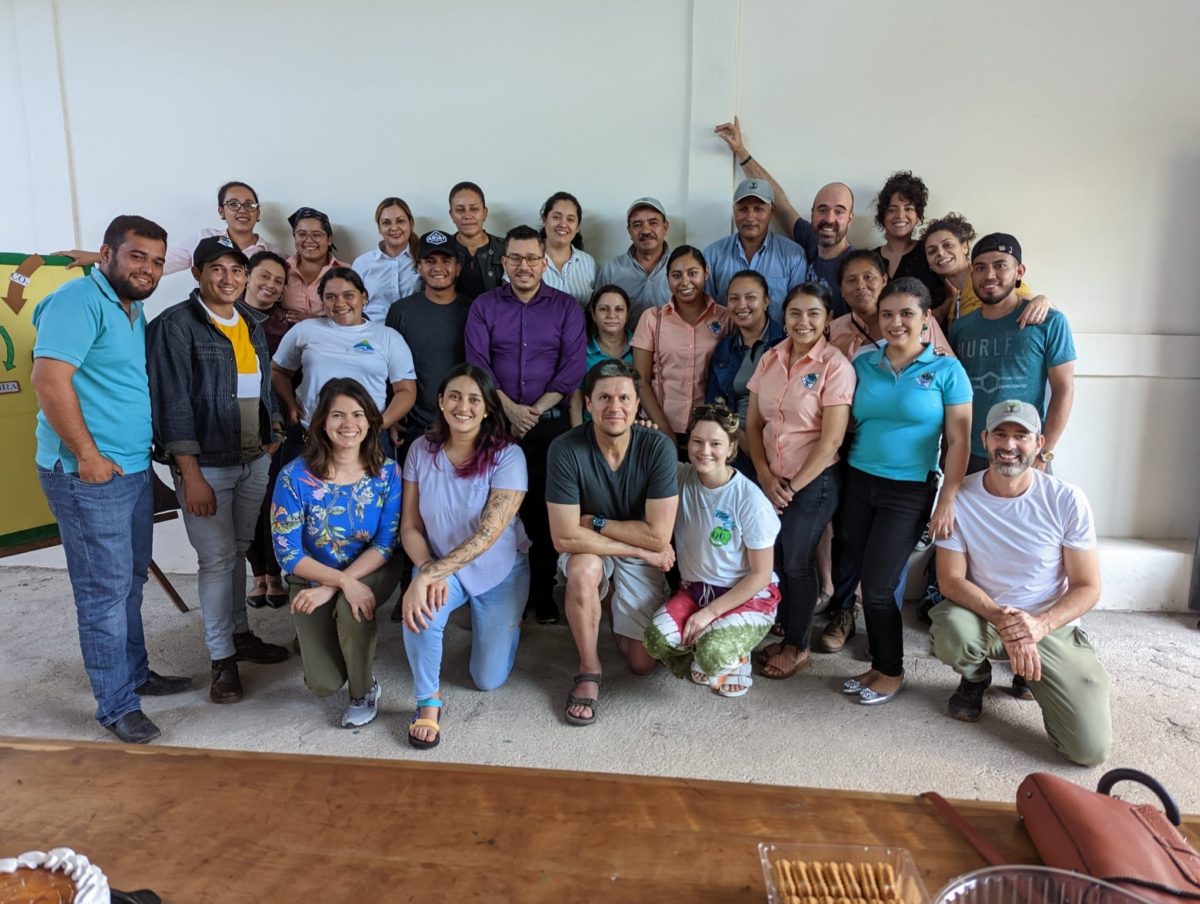Taking Root has issued its annual report for the CommuniTree Carbon Program’s 2022 vintage carbon issuance, completing another momentous year for the project. When the program started in 2010, we began by reforesting 40 hectares of land. Now, that number sits at more than 11,000. The growth of the carbon market has unlocked massive potential for reforestation, enabling the farmers that we work with, the staff of APRODEIN, the team at Taking Root, and our many other partners to create tremendous impact.
In response to unprecedented demand, Taking Root is now more focused on quality and growth than ever before. This has required building new systems, teams, and infrastructure that can continue to support our growth while raising the bar for high-quality carbon removals. It has been an exciting year, and we are more determined than ever to continue accelerating the restoration of the world’s forests.
A focus on growth: Over one million credits issued
The market’s willingness to pay for high-quality nature-based solutions has provided the investment needed to scale CommuniTree. Thanks to this, the impact of CommuniTree continues to grow, with 2022 being full of milestones reached and initiatives launched. With the release of CommuniTree’s latest annual report , CommuniTree generated 1,039,760 carbon credits to be issued by Plan Vivo. Having passed the one million mark, CommuniTree is now Plan Vivo’s largest project.
In total, 3,321 farmers are now reforesting lands across Nicaragua, with 1,182 joining for the 2022 season. In 2022 alone, these farmers have planted an estimated 6,311,427 trees, which will sequester over one million tonnes of carbon in the years to come. To achieve this feat, over 32 million seeds were sourced, with recruitment taking place across 60 different regions in Nicaragua. This includes two new operational regions: Santo Tomas and Diriamba. In all, it has been another incredible year of growth.
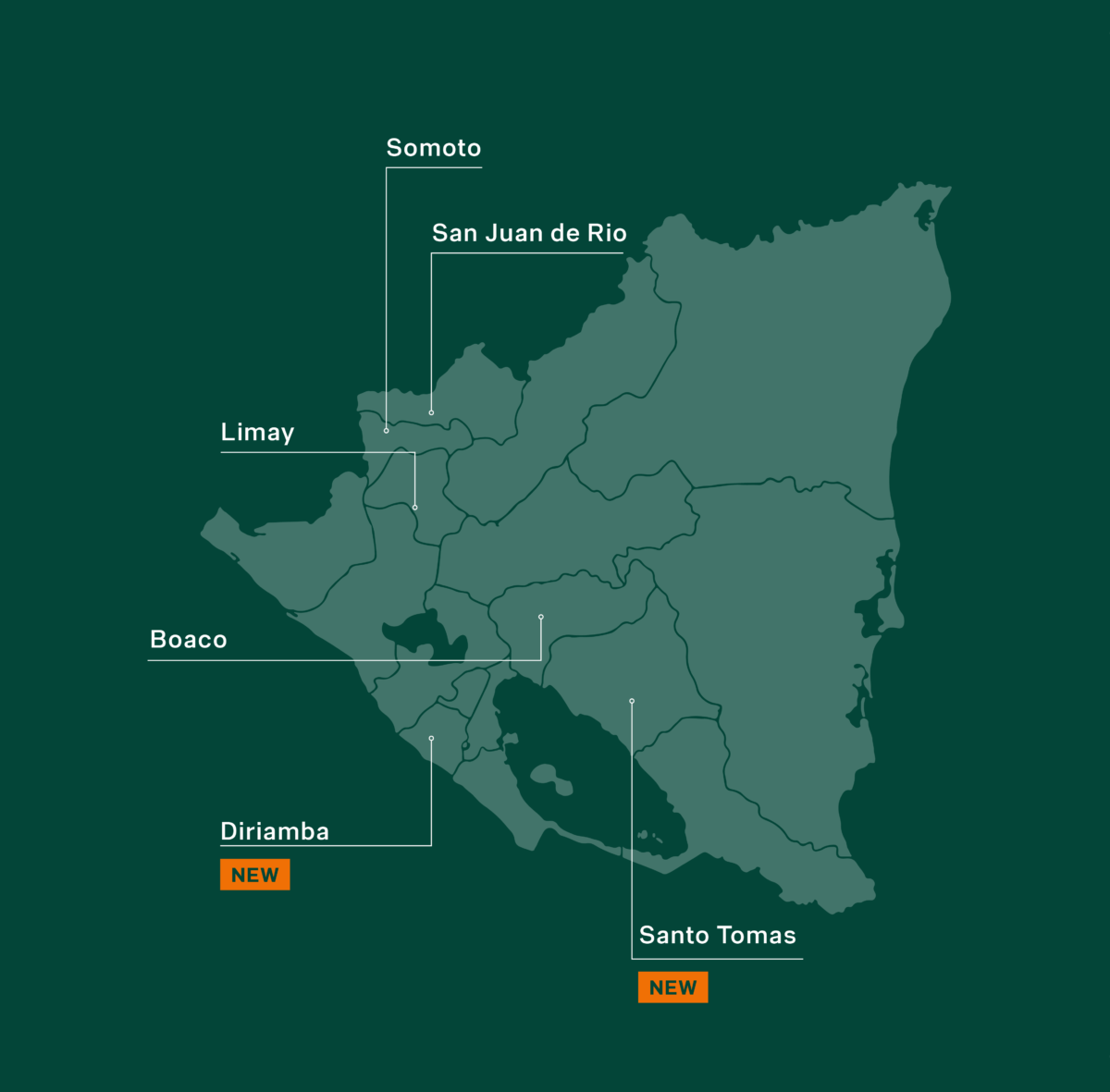
While growth is exciting, it requires a change from business as usual. It is one thing to reforest 40 hectares of land, and quite another to partner with over 3,000 farmers, restoring over 11,000 hectares across Nicaragua. In response, we have carefully analyzed the project’s processes, asking ourselves what needs to be true to operate at an even greater scale without compromising on quality. Together with APRODEIN, we have risen to this challenge, launching four initiatives to drive the capacity and professionalization of CommuniTree.
First, more people have been recruited to both the Canadian and Nicaraguan teams to improve operational efficiencies, provide greater support for farmers, and enable activities such as recruitment to take place year-round. Greater specialization has also taken place within each organization. At Taking Root, a five-person CommuniTree team has been assembled. Within APRODEIN, dedicated teams have been created for recruitment, monitoring and quality control.
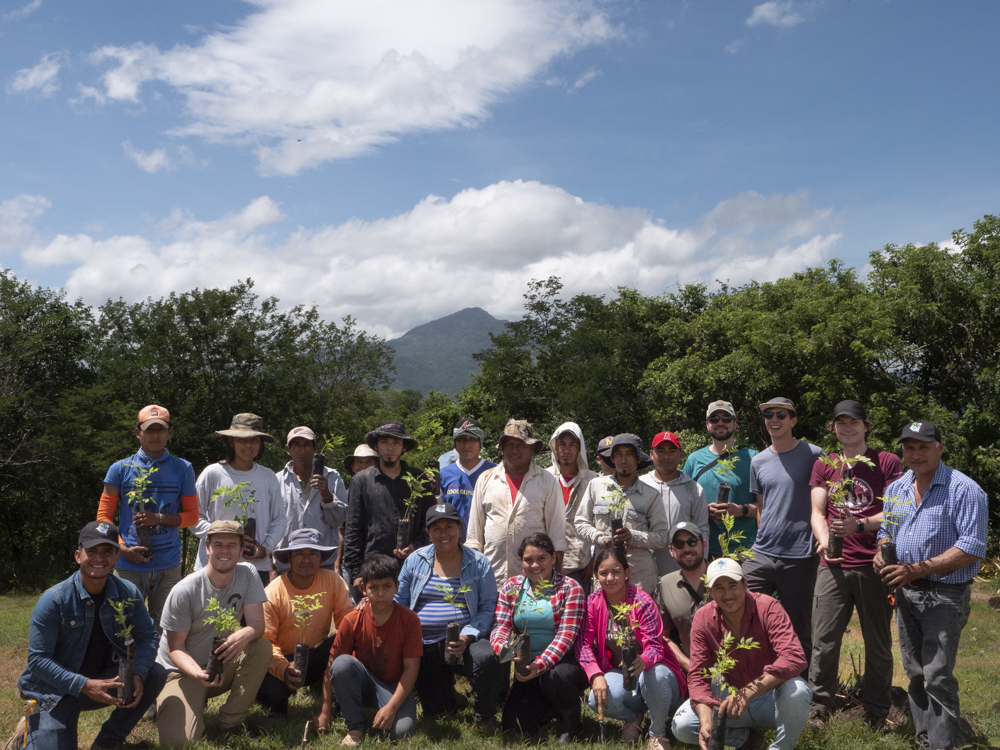
Second , we have enhanced our technology and processes to enable the CommuniTree team to make proactive decisions to meet operational targets. A new customer service function has been added to provide technicians with ongoing support and feedback on their data collection activities. In addition, Taking Root now creates on-demand quality data reports so that data collection issues can be identified and addressed quickly. Reporting on key activities such as recruitment and monitoring has been increased to weekly updates.
Third, we are unlocking farmer access to the market for forest products so that farmers can obtain long-term value from their trees. A 50-hectare plot of land was purchased in Somoto. On this land, a demonstration forest has been planted to showcase the project to new farmers. The land also houses a forest product processing facility, including two biochar reactors, a sawmill, and a woodworking shop. It has already generated over $80,000 in additional revenue for the farmers we partner with.
Fourth, we are significantly increasing the prices paid to farmers to improve the benefits of participation. When a farmer joins CommuniTree, the program provides payments for ecosystem services . This contributes towards the cost of establishing a plantation, which farmers often spend on hiring temporary labour to help with high-intensity silvicultural activities such as planting and weeding. In previous years, cash incentives covered approximately 70% of farmers’ labour costs, with farmers investing their own labour to cover the remaining 30%. However, labour costs have risen significantly in Nicaragua due to global inflation and labour shortages, with the latter attributed to mass emigration to the United States. Now, the cash incentives received by farmers have dropped to 49% as a proportion of their labour costs, limiting the program’s ability to recruit farmers. Going forward, the project will be paying farmers more money to grow trees, using revenue generated by higher priced carbon credits. This will provide greater incentives for farmers to join the program.
A focus on quality: the launch of new operational procedures
In analyzing the project’s processes to drive the capacity and professionalization of CommuniTree, we have been empowered to identify two key areas in which we can further improve the program’s operations: intensified focus on managing farmer attrition and early-stage tree growth.
Managing farmer attrition is key to long-term success
Farmer attrition is when a farmer leaves the program due to underperformance or a change in personal circumstances. It is a normal part of any project working with thousands of farmers. Working with people and nature inevitably means variability in parcel performance. Sometimes parcels underperform, families emigrate, or changes in personal circumstances mean that they can no longer participate. When this happens, the land and associated credits lost get replaced by an equivalent number of credits generated from other reforested areas to ensure the total carbon being removed from the atmosphere remains the same.
This process is expensive because hard work is lost, and it limits the total area number of credits that can be sold. To avoid this, the project always works with the farmers to find solutions but at a certain point, the cost of fixing the parcel is greater than the cost of starting over. For this reason, and as part of our drive towards professionalization, we made the difficult decision to remove 974.14 hectares of land from the project.
To reduce the rate of farmer attrition, we have launched several exciting initiatives that we believe will have really positive impacts across the program, largely focused on the early-stage growth of farmers’ trees.
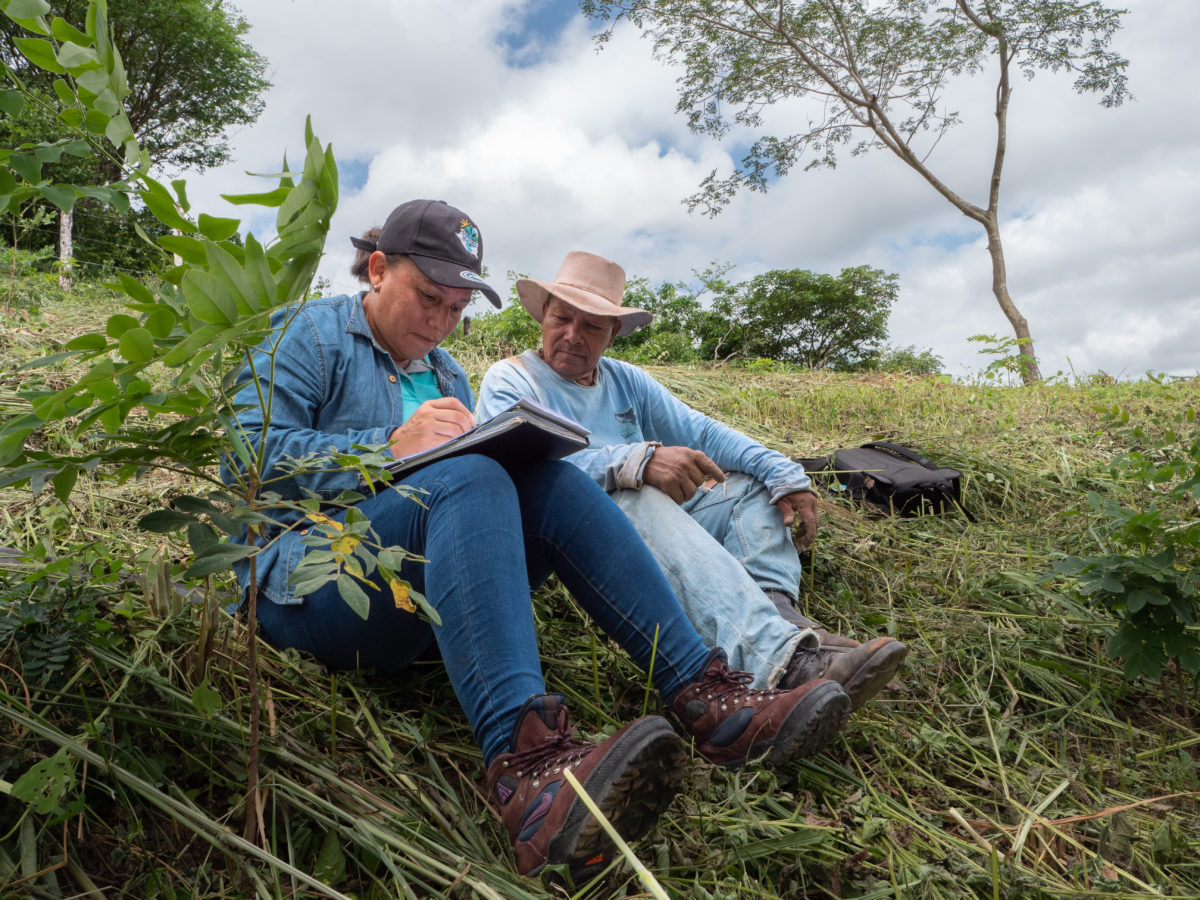
The first few years of a forest are crucial for growth
We have found that the quality of early-stage tree growth dictates how a parcel performs over time. Equipped with this knowledge, we have launched several initiatives to maximize early-stage performance.
APRODEIN is now recruiting and building nurseries earlier than ever before to ensure parcels are ready for planting on day one of the rainy season. This gives trees time to grow and build resilience to their first dry season. We have also implemented a number of strategies to improve tree health. For example, the project is experimenting with adding inputs such as biochar to the nurseries. This improves tree root development and allows the trees to retain more moisture in the soil when planted. Once the seedlings are in the ground, APRODEIN will work with farmers to increase the frequency of weeding during the first two years after planting. This helps to reduce competition for available resources from competing grasses.
Additionally, cross-organization efforts are helping to identify underperforming parcels sooner, rather than later. This makes it easier to reverse underperformance to get the parcel back on track. Taking Root’s technology platform is being rebuilt to better track and assess parcel performance. On APRODEIN’s side, a new quality control team has been established to act as an internal auditor to ensure parcel, farmer, and technician performance. Investment is also being made into training programs for the APRODEIN team to raise the skills and awareness of both farmers and technicians.
Finally, for future vintages, farmer contracts will be adapted so that the frequency and timing of payments are linked to specified milestones and parcel performance, providing more motivation for farmers to meet targets. More money will also be paid upfront to reflect the additional work and labour required for successful early tree growth.
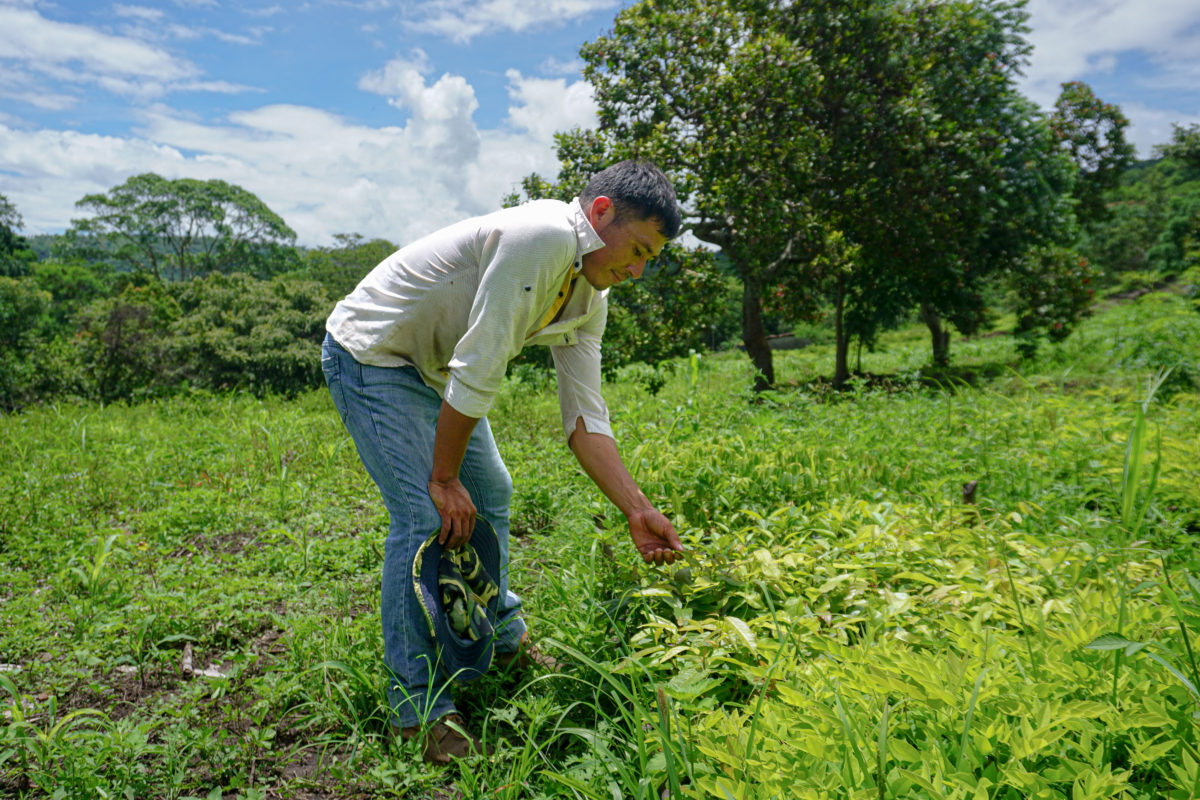
Looking to the future
Looking to 2023 and beyond, we will be increasing the supply of CommuniTree’s high-quality carbon removals by expanding the project’s reach to more farmers and regions across Nicaragua. To support this, we will be developing Taking Root’s technology platform, and further building value chains for forest products to ensure farmers get more value from their trees.
2022 has set the foundations to ensure that as we grow CommuniTree to its full potential, it is done with care. We are excited about what’s to come, and are grateful for our partnership with APRODEIN as we continue to improve and grow the success of CommuniTree’s reforestation efforts.
